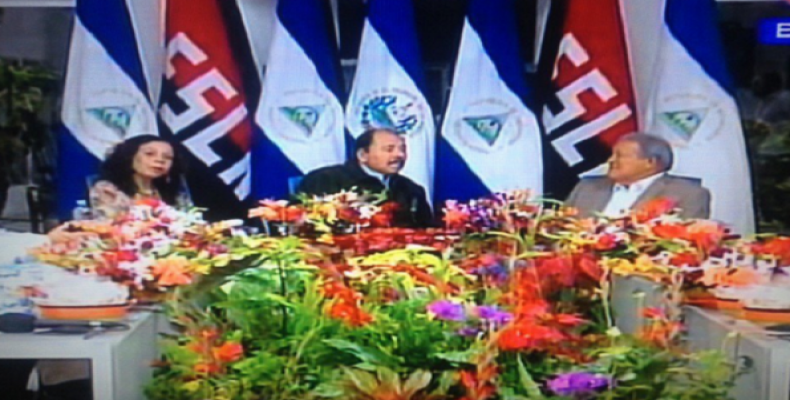Managua, November 16 (teleSUR-RHC)-- With high rates of violence still soaring in Central America, Nicaraguan President Daniel Ortega and Salvadoran President Salvador Sanchez met on Saturday in Nicaragua’s capital city Managua to tackle the issues of drug-trafficking and organized crime and to work towards further integration in the region.
In particular, the heads of state focused on the problems faced in violence-riddled Guatemala, Honduras, and El Salvador, also known as the northern triangle, where gang and drug-related violence are the harshest in Central America.
“Today, the threat to peace in the Central American region, the threat to the sovereignty of our people, is the fight against drug trafficking and organized crime,” said Nicaraguan President Ortega, calling for a region-wide effort that would benefit all of Central America.
Ortega also called for the international community, including the United States, to step up to play a role in resolving the problems. But he stressed that a true solution will look to resolving the root causes of gang violence, including poverty and inequality.
A 15-month truce between rival gangs in El Salvador launched in 2012 temporarily cut back the level of violence and rate of murders in the country significantly. However, after the truce began to unravel in 2013, violence levels skyrocketed to record heights in recent months.
Critics say the truce failed to address the underlying causes of El Salvador’s gang problem, resulting in the renewed surge in violence once the agreement broke down.
Ortega called for a comprehensive plan to address gangs, including strategies to provide options for youth. In Honduras and El Salvador, many suggest high rates of gang recruitment are partly due to the lack of options for young people, as well as threats of violence from gangs.
Salvadoran President Sanchez has repeatedly rejected the idea of entering into dialogue with gangs since he came into office in 2014. But El Salvador increasingly faces a gang crisis as violence and murder rates hit levels this year not seen since the end of the country’s decade-long civil war in 1992.


